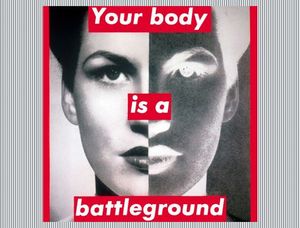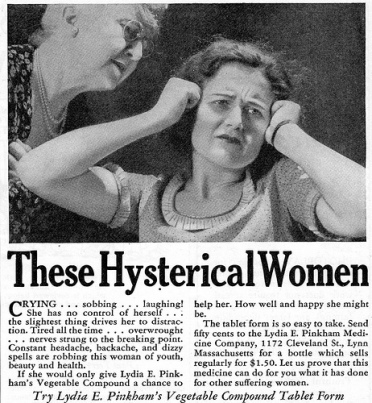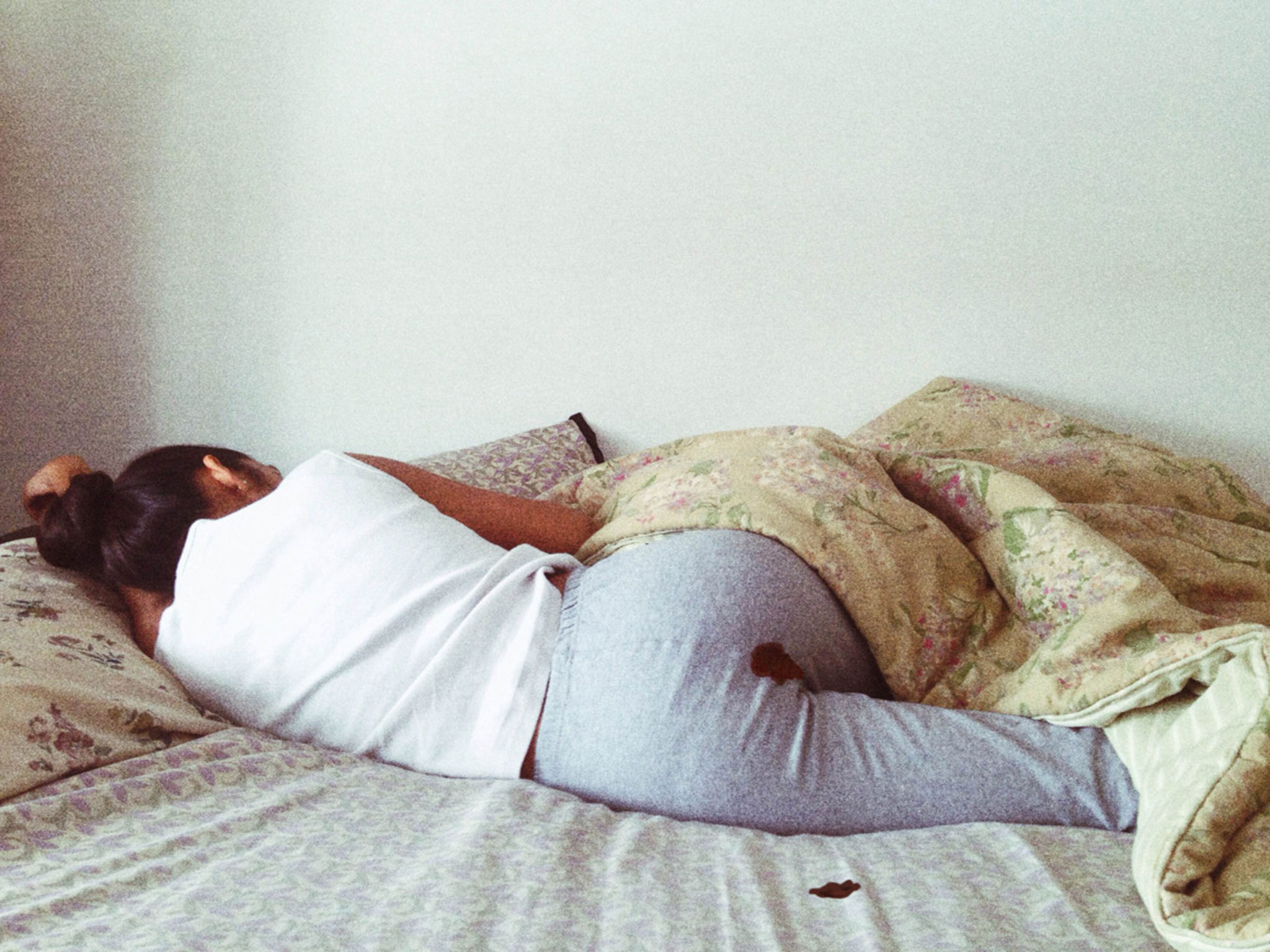Medicalization of PMS and Menstruation
Overview

Medicalization is the process of framing a normal biological process through pathologization and recognizing it as a health concern [1]. The medicalization of menstruation has created an idea of periods as a problem that requires management rather than being considered a natural bodily function [2].Throughout history, menstruation has been considered to be a taboo and promotes level of self consciousness influencing period shaming [3] .The idealized culture surrounding menstruation focuses on the biological aspects perceiving periods as an undesirable bodily process [1]. The term premenstrual syndrome (PMS) is defined as physical and psychological changes before and during menstruation that include fluid retention, acne, craving for sweet or salty food; aches pains in the muscles or joints, fatigue, irritability, tension, anxiety, sadness, moodiness,feeling out of control, insomnia and alterations in sex drive [1] .
History
Artistole recognized sperm and menstrual blood to be categorized as belonging to the same bodily fluids but representing different aspects of the soul in men and women [3] . Since men possess a more valuable material, women were considered inferior thus, socially constructing the idea of menstruation as an illness [3] . Symptoms of menstruation was identified as Premenstrual tension (PMT) and created a medical issue in 1932 [3]. It was later renamed to Premenstrual Syndrome (PMS) by endocrinologist Katharina Dalton, who felt the term was not sufficient in describing the multiple symptoms of menstruation [3] .
Period Shaming and Act
The social frame surrounding menstruation, focuses on self and not the act; this influences the way women view menstruating and their self worth [4]. Shame towards this bodily event ramifies negative emotions and perceptions causing women difficulty in naming one positive aspect of menstruating [2]. High levels of self consciousness observed among women gives rise to femininity and issues with femininity that should not be outwardly expressed in a male dominant place [2]. It is seen that men discuss this issue in a humorous way by mocking PMS and the products used during the menstruation. This reflects the fear of embarrassment and social ridicule of bleeding through her clothes or for someone to come aware of them menstruating [3]. Demeaning emotions experienced from PMS, causes women to become more irrational and unstable thus, creating greater difficulty in the control of emotions [3]. Negative attitudes towards the struggle of emotions felt, teach women to not accept menstruation as a natural bodily occurrence but, a problematic part of womanhood [2].
Model of Disability
The model argues that individual impairments do not reason for the disability, it is rather the negative social construction and attitudes resulting in the disability [1]. Minimizing menstruation through medication gives rise to the social construction of disempowering women and conceal their bodily processes [1]. By defining their experience as a medical problem, women become isolated from social, cultural and environmental contexts of their lives, leading to selective attention and reinforcing stereotypes through gender priming [1]. This notion represents that, "one is not born, but rather becomes , a woman", stating gender to be culturally and socially constructed [2].

Conclusion
Medicine focuses on the treatment of individual societal issues as biomedical conditions. The social frame roots and controls the facts we hear, thus, making science powerful. Focusing on medicalization rather than social norms influences the process of how women view themselves and their emergence into womanhood. The medicalized explanation recognizes that women have a condition that must be treated and should therefore seek help instead of rejoicing in womanhood.
References
- ↑ 1.0 1.1 1.2 1.3 1.4 1.5 Chekoudjian, C. B. (2009),The subjective experience of PMS: A sociological analysis of women's narratives.
- ↑ 2.0 2.1 2.2 2.3 2.4 Buhaly, B. (2013),Perpetuating PMS: What Supports the Stereotype?.
- ↑ 3.0 3.1 3.2 3.3 3.4 3.5 3.6 JENKINS, A. L. (2014),Defying the Laws of Nature?: Menstruation and Female Intellect in Historical Perspective (Doctoral dissertation, YORK UNIVERSITY, TORONTO)
- ↑ Lese, K. M. (2016). Padded Assumptions: A Critical Discourse Analysis of Patriarchal Menstruation Discourse.
